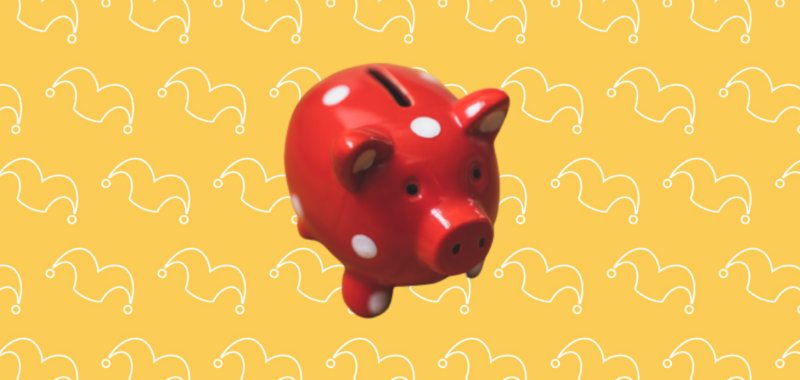Many people don’t realize just how bad their savings account is. They may not even know the interest rate they’re earning on their deposits.
If that describes you, then you may be costing yourself hundreds of dollars each year — and thousands in the long run.
If your bank pays a low annual percentage yield (APY), let’s look at how much interest you could be earning elsewhere — and how you can easily switch to a better account.
The cost of a low APY
Most big, traditional banks offer savings accounts with very low APYs. The national average APY is just 0.41%. Meanwhile, the best high-yield savings accounts have APYs of about 4.00% or more.
Our Picks for the Best High-Yield Savings Accounts of 2025
|
American Express® High Yield Savings Member FDIC. APY 3.80%
Rate info
Member FDIC.
|
3.80%
Rate info |
$0 |
|

Capital One 360 Performance Savings Member FDIC. APY 3.70%
Rate info
Member FDIC.
|
3.70%
Rate info |
$0 |
|

Western Alliance Bank High-Yield Savings Premier Member FDIC. APY 4.30%
Rate info Min. to earn $500 to open, $0.01 for max APY
Member FDIC.
|
4.30%
Rate info |
$500 to open, $0.01 for max APY |
Here’s how much a deposit of $10,000 would earn over time in 1) an account paying the average rate and 2) an account paying 4.00%.
|
Years |
Interest Earned (0.41% APY) |
Interest Earned (4.00% APY) |
|---|---|---|
|
1 |
$41 |
$400 |
|
5 |
$207 |
$2,167 |
|
10 |
$418 |
$4,802 |
|
20 |
$853 |
$11,911 |
Data source: Author’s calculations.
The 4.00% APY account would earn $359 more in the first year alone. Over the course of years, the difference is astronomical.
Want to earn 10 times the national average APY? Check out our list of the best high-yield savings accounts and open a new account today.
Why do some banks offer much higher APYs?
Many big, traditional banks have physical bank branches. This increases their costs, so they tend to have lower APYs — and more fees. On top of that, they know that many customers will never bother to switch bank accounts, so they don’t feel the need to pay more.
The banks that pay the highest APYs tend to be online-only. This saves them a lot of money, so they can pass those savings on to their customers through higher interest rates and low (or no) fees.
What to look for in a savings account
If you’re ready to switch, here are some key features to look for:
- High APY. Look for accounts offering at least 3.75% APY to maximize your earnings.
- No monthly fees. Avoid banks that charge fees just to keep your money there.
- Easy access to your money. Ensure the account allows quick transfers when needed. The best banks have user-friendly apps and websites that make it fast and easy to manage your money.
- FDIC insurance. Make sure your bank is insured, so your money is protected up to $250,000.
- Good customer service. Read reviews and choose a bank with helpful support.
- A good checking account. You’ll probably want to link your new savings account to a checking account at the same bank. The best checking accounts pay interest and have other perks like no overdraft fees and a large ATM network.
How to switch to a better account
Switching to a high-yield savings account is simple. Just follow these steps:
- Research your options. Compare APYs, fees, and key features.
- Read the fine print. Some banks require you to deposit a minimum amount to earn their highest APYs, for example.
- Open a new account. This should only take a few minutes online.
- Transfer your money. Move your savings from your old account to start earning more interest.
- Update automatic deposits and withdrawals. If you have direct deposits or automatic bill payments set up, update them ASAP.
- Close your old account. Once everything is moved over, close the old account to avoid unnecessary fees.
I recently switched bank accounts, and I completed all the above in about an hour. Not bad for thousands of dollars in future interest payments!
Don’t delay — it’s easier than you think
Moving your savings to a high-yield savings account is an easy, surefire way to start earning more money now. Don’t settle for a stingy bank just because you think switching will be a headache. With competition more heated than ever, banks have made it incredibly easy to open and fund a new account.

